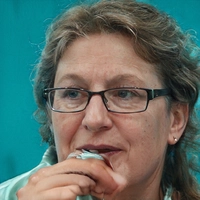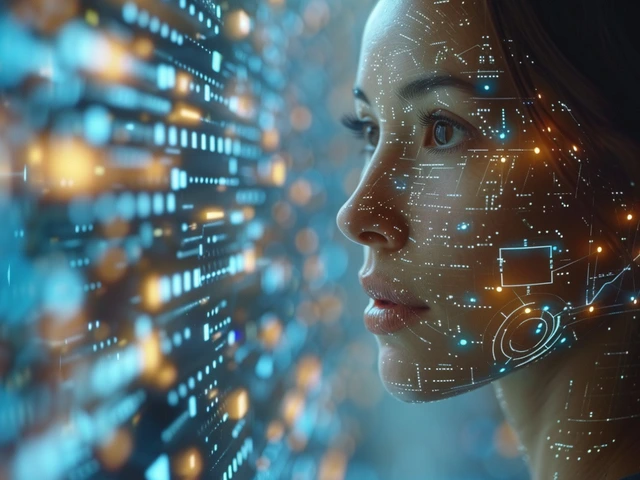Aug
7

- by Lillian Stanton
- 0 Comments
Initializing the DNA Code
Imagine awakening one day in an alternate universe, holding the keys to a completely different world, all in the form of structured syntax. A world where letters, numbers, and symbols conjured up dynamic digital landscapes, and individuals with the ability to understand these symbols could mold reality virtually. Well, I reckon we haven't quite jumped dimensions yet, but that highlighted world isn’t a fragment of some science fiction narrative – it's ours, here and now. Suddenly, the lines of JavaScript, Python, Ruby, HTML don't seem that spooky, do they? Just as a DNA strand determines the traits of a living organism, these unique combinations of codes are shaping our world and molding the future, giving birth to a universe brimming with endless possibilities.
Who would have thought, back when the internet was a mere novelty, that one day every keystroke we type would significantly contribute to our global hive mind? Fast-forward to today, I can’t help but smirk when I realize that my morning starts with checking a weather app coded by someone halfway around the globe while my coffee machine is brewing up my personality-driven, programmed coffee blend. Grin! Even in the heart of Christchurch, the lingua franca has definitely turned digital.
A Look into the Coding Crystal Ball
Business magnates, scientists, and even starry-eyed dreamers unanimously predict that coding will be the defining skill set of the future. Can you guess why? Because it's already making its mark today, silently running the world behind the curtains. All of our devices, from your trusty smartphone to the heart-monitors at hospitals, operate on code. Coding's elegance and versatility create dynamic webpages, impactful visualizations, clever algorithms, and let's not forget those infectious computer games (I’m looking at you, long nights of "just one more level").
Today's top industrial pioneers, like Elon Musk and Jeff Bezos, rely heavily on coders to propel us farther into this digital age. They're launching rockets into space, creating sprawling virtual economies, even experimenting with mind-machine interfaces. Is this exciting or downright chilling? Maybe, it’s a serving of both! But it's undeniably the future we're building. So don't be surprised when the ability to code, debug, and cipher syntax becomes as crucial as reading or writing. Moreover, the booming tech industry's plethora of job opportunities only makes a stronger case for everyone to get familiar with coding.
Turning Ordinary into Extraordinary: Everyday Coding Adventures
As someone who likes to dabble in coding, I can assure you it's not all rocket science and tech-speak. There’s coding magic happening in our everyday lives, making mundane routines extraordinary. From automating email responses to customizing digital personal assistants like Alexa or Siri, coding is making us commanding wizards in our virtual abodes. Not to mention how it aids in making our children’s education fun while preparing them for a digital future. Plus, don't get me started on its ability to turn a simple idea into start-up gold!
Take, for instance, the time when I decided to add a sprinkle of coding magic to my mundane household chore: laundry. Aren’t we all familiar with the tiresome drill of sorting through clothes, separating the whites from the colored, delicate from the non-delicate? Well, in an ingenious stroke, I utilized my amateur Arduino skills to build a smart laundry sorter. It used color sensors to separate the whites from non-whites and a weight sensor for segregating the delicate. How's that for a slice of digitized life? If I may cheekily say so, these are simply the perks of being code-literate!
Coding Skills: Not Just Another Job Requirement
It's clear that coding isn't merely another job requirement; it's a tool for creating, innovating, and problem-solving. It's a way to unleash creativity, a language to express complex ideas, a key to unlock a library of opportunities. In other words, coding is a contemporary form of literacy, a fundamental skill that our future generations need to navigate their digital landscape confidently.
As adults, integrating coding into our skillset can provide us with an edge in the workforce. It allows us to comprehend the essence of digital strategies better, communicate more fluently with tech teams, and perhaps even automate some of our routine tasks. For kids, learning to code can harbor both creative and logical thinking, equip them with problem-solving skills, and impart resilience as they learn to debug their programs and bounce back from setbacks.
Paving the Coded Future: A Step Towards Digital Literacy
Coding is undeniably a big part of the future, believed by many as the "DNA of tomorrow." The good news is, it's more accessible than ever. Thanks to a host of apps and websites teaching programming in a fun, interactive manner, coding surely doesn’t seem like cracking the Enigma code anymore. However, I believe it's not just about learning a programming language. Instead, it's more about understanding the logic, the problem-solving prowess, and the creativity that coding entails. Practically, it reflects on the way we perceive the world - in loops, variables, and functions.
Just how we learned to harness fire, invent the wheel, and decode the DNA, it's time to decipher the code running our world. Yes, it might not always be easy, it's like learning a new language after all. But in this digital era, it's undoubtedly worth it. As for me, I’ll be here in my corner of Christchurch, enjoying the art of coding while sipping on the most code-perfected coffee. Cheers to the future!






Write a comment